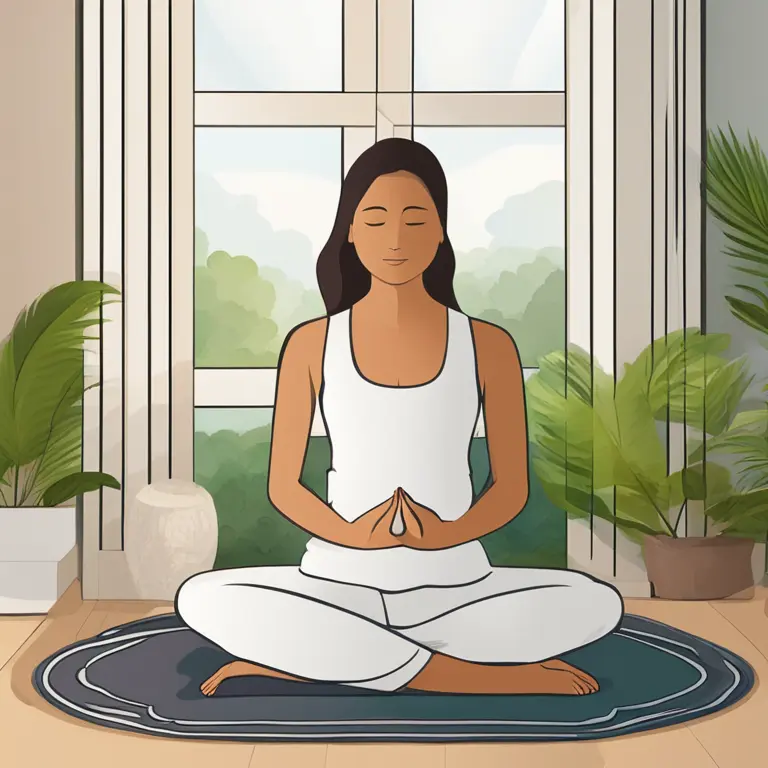
Meditation Basics: A Step-by-Step Guide for Your Practice
Learn the core steps of meditation for enhanced well-being and mindfulness. Begin your journey with our straightforward guide.
article by Hina Kurosawa
Introduction to Meditation
Meditation has long been recognized as an effective practice for enhancing mental clarity, emotional stability, and overall well-being. Its relevance continues to increase, especially as our lives become more fast-paced and digitally oriented. In this article, we'll walk through basic meditation steps designed to help you cultivate mindfulness and tranquility. Whether you're a complete novice or looking to refine your technique, this guide aims to support your meditative journey.

Setting Your Intentions
Before you dive into the act of meditating, it's crucial to set your intentions. This means reflecting on why you're meditating and what you hope to achieve from your practice. Intentions can vary from seeking relaxation, improving concentration, or cultivating compassion. By being clear about your goals, you can tailor your meditation practice to align with your personal aspirations. Setting intentions serves as a compass, guiding your practice towards the outcomes you desire.

Creating a Conducive Environment
The environment where you meditate plays a significant role in the quality of your experience. Choose a quiet, clutter-free area that allows you to feel at ease. The space doesn't need to be large or elaborate—it could be a quiet corner of your home or even a serene outdoor setting. Ensure that you are comfortable by dressing in loose, breathable clothing and sitting on a cushion or chair that supports your posture.

Meditation Posture Basics
A proper meditation posture aids in maintaining focus and allows energy to flow freely. Sit with a straight spine, relax your shoulders, and lightly tuck in your chin. Rest your hands comfortably on your knees or in your lap. If sitting on the floor is uncomfortable, feel free to sit in a chair with your feet flat on the ground. Keep your eyes partially closed or fix your gaze gently on a spot to minimize distractions.

The Meditation Process
Begin your practice by taking a few deep breaths, allowing your body to relax with each exhale. Gradually transition to natural breathing and bring your attention to the rise and fall of your chest or the sensation of air passing through your nostrils. When your mind wanders, gently acknowledge the distraction and refocus on your breath. This technique cultivates awareness and presence, serving as a fundamental aspect of various meditation traditions.
Incorporating Mindfulness Throughout the Day
While formal meditation is important, mindfulness doesn't have to be limited to your practice sessions. Try to incorporate moments of mindfulness throughout your day, like during a walk or while eating. Pay attention to your senses, your breath, or the activity at hand. This consistent application will deepen your meditation experience, leading to a more mindful existence, even amid daily interactions.
Exploring Advanced Techniques
As your meditation practice matures, you might feel called to explore more advanced techniques. These can include guided visualizations, mantra recitations, or loving-kindness meditations (metta). Such practices can add depth to your meditation, potentially providing profound insights and personal growth. However, remember that the foundation of any advanced practice remains in the simplicity of being present and aware.
Published: 1/24/2024
Modified: 1/24/2024
More predictions
Come back here soon to learn more about yourself and your future


Varieties of Meditation Techniques for Inner Harmony
Explore different meditation techniques to enhance your inner peace and spiritual growth in this comprehensive guide.


Effective Meditation for Contemporary Life
Discover the meditation methods that best suit the fast pace of contemporary life and how they enhance mental and emotional well-being.


Meditation Techniques for Individuals With ADHD
Discover effective meditation practices tailored for individuals with ADHD to improve focus, reduce hyperactivity, and foster a sense of calm.